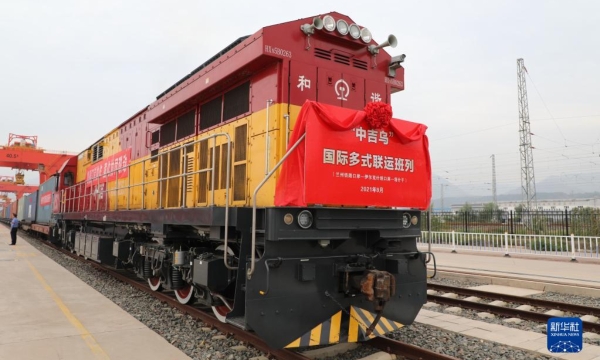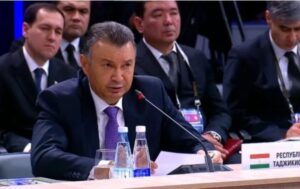Kyrgyz Prime Minister Akylbek Zhaparov has signed a resolution to allocate land for the China-Kyrgyzstan-Uzbekistan railway project, marking a step in the implementation of the 454-kilometer railway route. The decision regulates the transformation of land in Jalal-Abad for the project’s construction.

The resolution calls for the reclassification of 44.29 hectares of land from agricultural and water resources categories to “land for industry, transport, communications, energy, defense, and other purposes.” This includes 36.55 hectares of irrigated arable land, 7.54 hectares of dry land, and 0.2 hectares of swamps.
Jalal-Abad City Hall has been tasked with updating land registration records, facilitating the exchange of privately owned land for equivalent plots from the State Fund of Agricultural Land, and approving urban development plans in accordance with the law. The resolution also outlines that any improper use or failure to develop the land could result in its confiscation.
The China-Kyrgyzstan-Uzbekistan railway project was agreed upon by the three countries in September 2022, with a route that spans 454 kilometers. Under the project’s joint venture, Kyrgyzstan and Uzbekistan will each hold a 24.5% stake, while China will control 51%.
Kyrgyzstan has committed to investing KGS 11bn ($126.7mn) in the railway’s construction. According to the draft state budget, the country’s contributions to the project between 2025 and 2027 will amount to approximately $131.39mn in total. This includes KGS 2.42bn ($28.67mn) in 2025, KGS 4.29bn ($50.87mn) in 2026, and KGS 4.37bn ($51.85mn) in 2027.
The financing for the project was finalized in June 2024 through an agreement between the three countries. The Zhogorku Kenesh ratified the agreement on June 19, and President Sadyr Japarov signed it on June 27.
Construction on the railway began in October 2024.




